
Kathryn Anne Tauber
English
1102-
058
UNCC Student
The Phenomena of COSMETIC SURGERY
How is it influencing children today?
COSMETIC PLASTIC SURGERY- not something that automatically makes you think of young, average, teenagers who are going through puberty.
My name is Katie and I grew up reading the latest and most scandalous celebrity gossip in magazines while my mom checked out her groceries. As a young teenage girl, I was impressionable. I loved following and keeping up with the biggest and greatest Hollywood stars. Each pretentious magazine criticized the celebrities for what they look like. And then there was always the rumors of plastic surgery. Each magazine speculated and reported on all the latest nose jobs and breast implants. My eyes were opened- did I need cosmetic surgery too?!?
I want to explore the phenomena of cosmetic surgery and its effects on young adults. Why makes people want to have work done? How do they feel after their procedure? And most importantly, how do adolescents play into all of this?
Definitions
A teenager or an adolescent can be defined as someone within the ages 13 to 18 (Plastic). Due to the fact that they are not yet legal adults, adolescents are required to have a parent or guardian’s consent in order to have a procedure done .Cosmetic surgery is purely in hopes for a better appearance in the eyes of the patient (Plastic).
Cosmetic surgery is not the same thing as reconstructive surgery (Cosmetic). For example, if someone was in a car accident and crushed their nose into pieces, reconstructive surgery would be necessary. On the other hand, if a young girl dislikes the bump on her nose that she was born with and wants it removed, it would be considered cosmetic surgery. In this instance, the young girl is looking to become more attractive with the removal of the bump. Cosmetic procedures are not covered by insurance so therefore it is completely paid for by the patient (Cosmetic). "Cosmetic surgery is a unique discipline of medicine focused on enhancing appearance through surgical and medical techniques" (Rhinoplasty).
Common Cosmetic Procedures for Adolescents
There were 63,623 adolescents who had a procedure done in 2013
OTOPLASY
(Changing the position or shape of the EARS)
6,871 surgeries in 2013 (2013 Statistics).
"Otoplasy is very common in young boys who have been teased or picked on" (AAFPRS).
Experience of an 8 year old and a 13 year old (video in hyperlink).
Courtesy of COLORADO FACIAL PLASTIC SURGERY

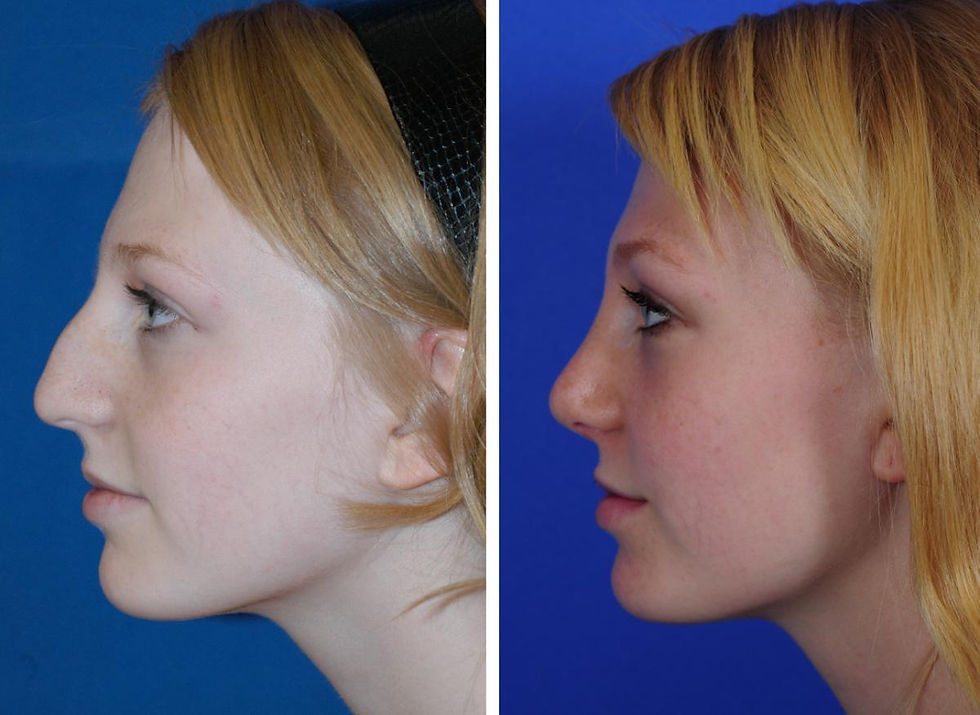
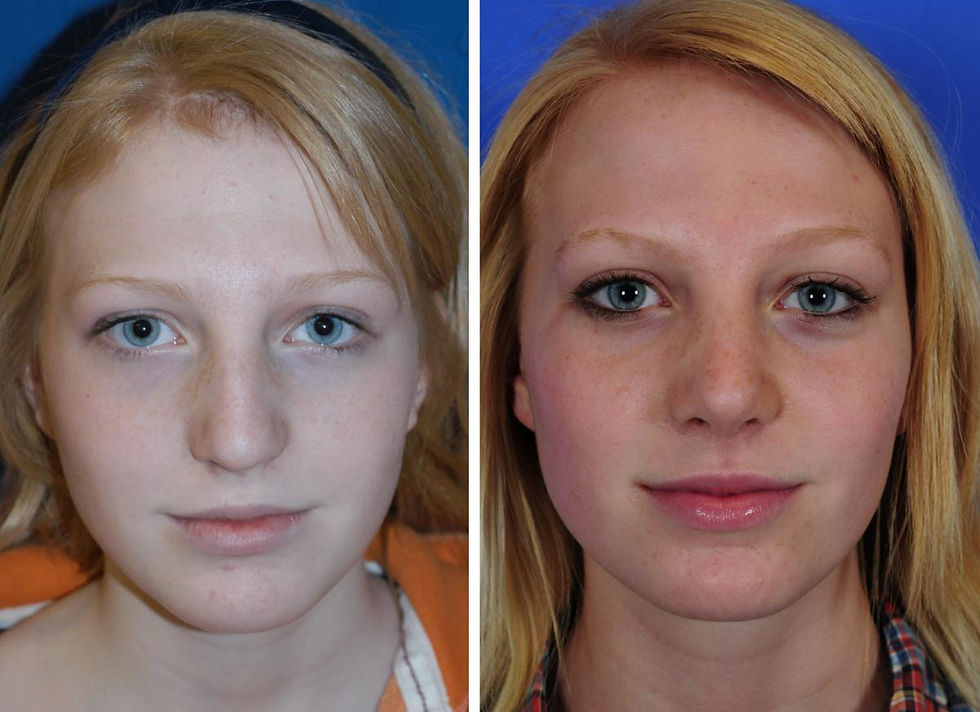
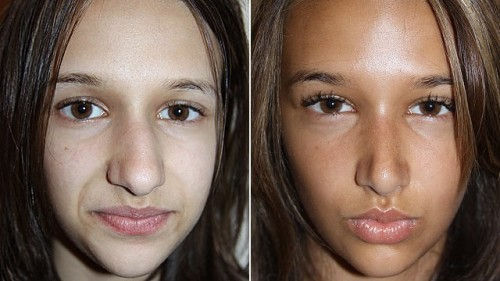
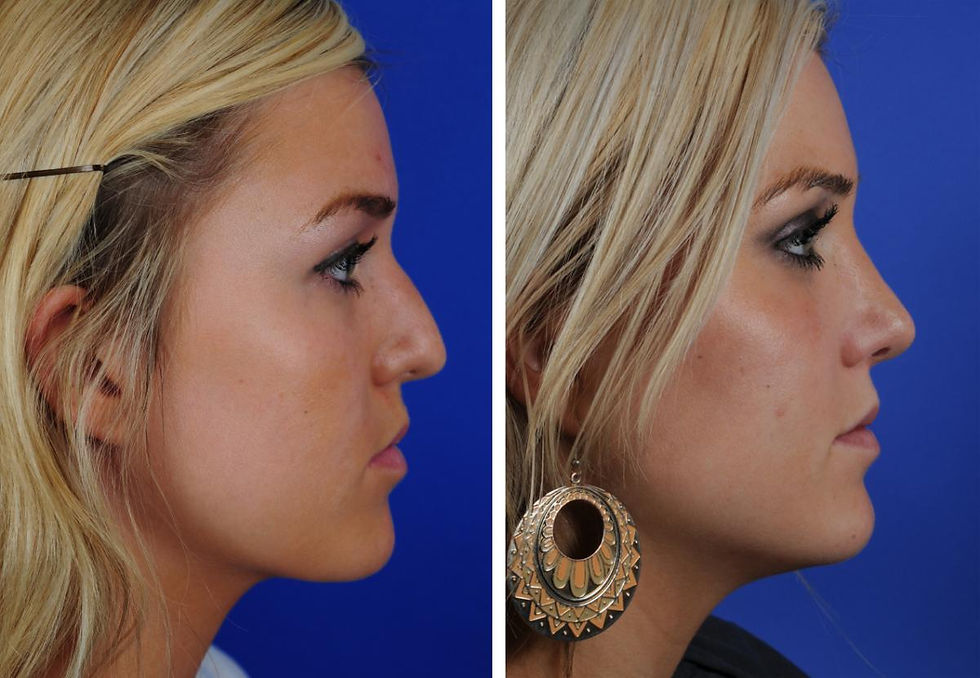
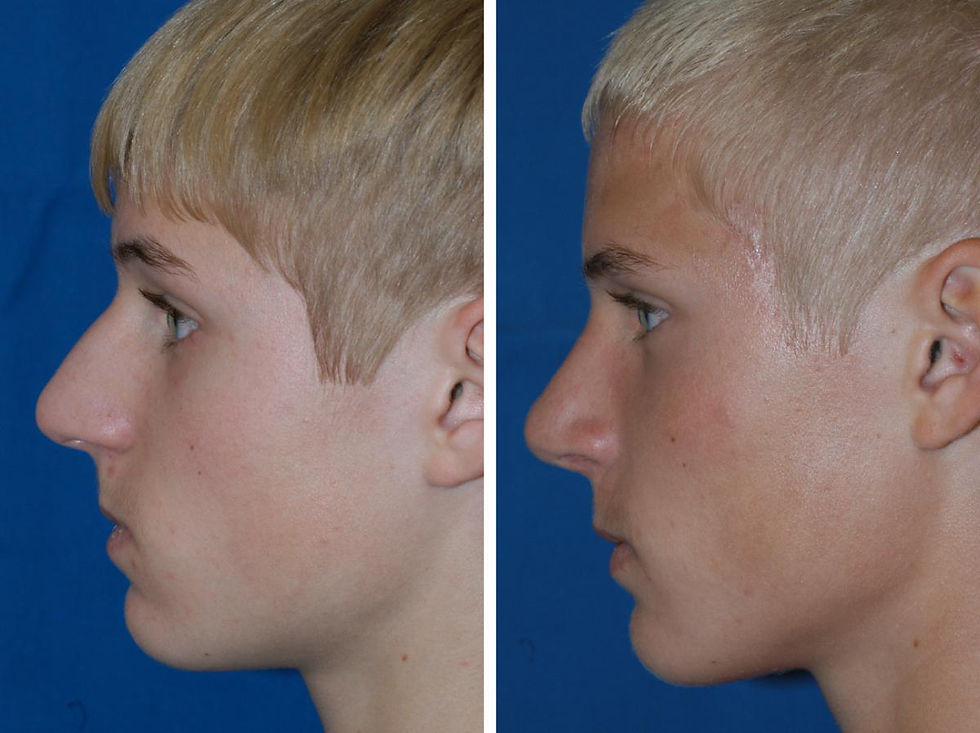
(Nose Job or Nasal Reconstruction)
30,672 procedures completed in 2013 (2013 Statistics).
Often used to improve the curvature or a bulbous look of the nose (Plastic).
A seventeen year old's perspective!

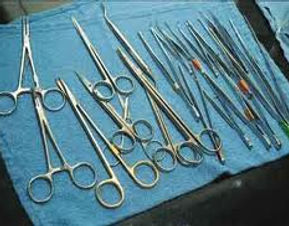


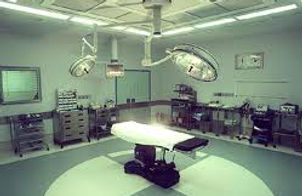
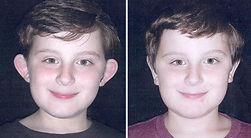




Breast Augmentation or
Augmentation Mammoplasty
8,234 adolescent surgeries in 2013 (2013 Statistics).
Silicone or saline implants are placed under the breast tissue in order to increase breast size (Breast Augmentation).
1) Procedures performed on adolescents are rapidly increasing (Teens). There has been a significant increase in surgeries the past ten years (Teens). Almost half a million teenagers will go under the knife in the next year and that number will definitely continue to increase (2013 Statistics).
2) Is this showing us that teenagers are unhappy with their own skin? It makes me wonder, why was there such a dramatic increase? A few ideas to be explored: the media, television, recent technology, friends, family.
So what are these procedures showing us???

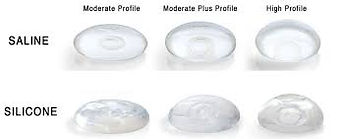
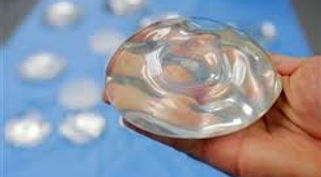
1) To boost self-esteem.
People are naturally judgmental and some individuals feel they do not measure up to society’s standards (Plastic). Where does this pattern of self-hate come from? Does it come from unrealistic standards we place on children? Are we manipulated to look up to idols and celebrities to understand the standard of beauty? What is the ideal image or definition of beauty? Who defines beauty- society, doctors, and patients? Does the outside beauty dictate or control the inside beauty?
Possible Reasonings behind this Phenomena
2) People want to fix a "flaw".
Everyone is different and is special in a certain way. However, some people see something that can be fixed in order to blend in better with the others around them (Can Plastic). People want to fit in. No one wants to stand out or draw unnecessary attention to themselves. This comes back to the idea of beauty. Where exactly does the definition of beauty come from?
3) They want to look like someone else.
Celebrities and idols are everywhere in pop culture and constantly bombard American literature and media. These people are always on television, throughout the tabloids, in advertisements, and in movies. Perhaps people are being conditioned into thinking what is accepted to be beautiful. Are children picking up on these ideals as well? If we look at certain toys that are marketed towards the younger generation we see: Barbie dolls with long tan legs, a flat tummy, a thin face, and not an inch of fat can be found. In action figures geared towards young boys: muscular and toned superheroes with large arms and 6-pack abs. Is this how we want to show our children what is represented by the “ideal body”? Are we creating unrealistic standards and expectations for children? Is there now more pressure on how we should ideally look?
Today Tonight: Plastic Surgery Teens
https://www.youtube.com/watch?v=X9iiPTnoTmU
"I love the idea of plastic surgery that if someone isn't confident with something on their body, they can fix it" - 18 year old.

4) Were they were pressured into it?
Parents, siblings, peers, friends, media and television are all influencing factors. Some teenagers felt like they were looked down on and did not receive as much attention as others due to their appearance. There was a study that proves that more attractive people tend to do better in life and are given more opportunities than non-attractive people (Stanger).
"Studies have shown that attractive people are usually hired sooner, get promotions more quickly, and are paid more than their less-attractive coworkers. Attractive people earn an average of 3 or 4 percent more than people with below-average looks, according to Daniel Hamermesh, professor of economics at the University of Texas at Austin (Stanger).
Is it harder to be unattractive? Do these young people feel overlooked, belittled, and/or discriminated against?
5) Bullies.
American schools have focused their attention on bullying. Schools all across the country are creating anti-bullying campaigns. Bullied children are more likely to feel bad about themselves and take action later in life. They are more likely to have cosmetic procedures to create the appearance they wished they had earlier in life.
Are these campaigns working or are they creating more bullying? What are children doing to combat bullying? Do they take drastic measures to prevent it?
https://www.youtube.com/watch?v=hq4s4S9wMWI
This may seem extreme, but it is actually taking place in America today.
Parents are avoiding having thir child bullied at all costs.
"I really want to go to New York and get my ears fixed" (Diller).
Opinions on Child Cosmetic Surgery
on the American Board of Plastic Surgeons website, there is a statement that says that any individual, ages 13 years and older, is eligible for cosmetic surgery if they are "healthy individuals with a positive outlook and realistic expectations are appropriate candidates for cosmetic procedures. Plastic surgery is a personal choice and should be done for yourself, not to fulfill someone else's desires or to try to fit an ideal image" (American Board). Some parts of the body are fully grown at the age of 13, such as the nose, so some doctors believe that it makes sense and is fine to operate on these patients (New Edition). Do the doctors genuinely care and want the 13 year old feel comfortable in their body? Is it a possibility that the teenager will one day regret the surgery and learn to love their body?
We know that these are awkward years for everyone, should teenagers wait it out and make their decision about surgery years later if it is still an issue? Or is the doctor looking for a new client in hopes of a larger paycheck?
According to the surgeons, "all surgery is dangerous"- but it can be done safely with the "proper precautions" (American Board).

OPINION OF GENERAL PUBLIC
When looking through articles on the internet, some people think it is outrageous and ridiculous for a young girl or boy to want such a drastic change to their body (Can Plastic).
Some believe that you are an individual and what you see as flaws, are actually what make you special and different.
The articles online regarding a young teenager who has had cosmetic surgery have very critical and judgmental reviews- people are not accustomed to adolescents altering their bodies. It is not socially acceptable with the older generation.
However, there is a newer, younger, generation with different thoughts towards how you should feel about yourself. Many young people believe that loving yourself is the first step towards loving others and therefore, justifying cosmetic surgery.
Alex Bridges, 18 years old and a friend of mine, believes that surgery is "unnecessary a waste of money. People should not feel that they need this to feel better about themselves" (Bridges 2014).
On the other hand...
Kelsey Turner, anther friend of mine believes that people are "free to do whatever they want. If surgery is going to make you happy, you should pursure it. I understand that people have flaws- we all do. I'm a perfectonist myself- I'd do anything to make myself feel my absolute best" (Turner 2014).
vs
PROS
Some people have such a great experience, they go back for more surgery!
Surgery alters a specific part of someone’s body. Without any problems, ideally, the patient is satisfied with the outcome (New Edition).
There can be an increase in self-esteem and self-image (New Edition).
Some people think that they will become more accepted, attractive and wanted.
Others think it has a great impact on sex-appeal.
The end result: have something that was not there to start with.
CONS
Not everyone has an enjoyable experience with cosmetic surgery.
Some people become very sick after the procedure because the anesthesia has a harsh effect on them.
There are often complications in surgery which can cause serious trauma or even death. There is always a risk involved in surgery. When the body is being cut open, dangerous things can and do happen.
There recovery process is generally long and painful and can take up to weeks for a full recovery. The body was just placed under extreme pressure and stress. The patient can expect to be out of commission for possibly weeks to come depending on the operation (New Edition).
$ $ $ $ $ $
Also, these procedure are pricy and expensive for the average person. Average cost is 3-4,000 dollars (Surgery Costs). Keep in mind that the typical adolescent does not have this kind of spending power.
COSMETIC SURGERY
What can we conclude???
It seems that the general consensus of the public is shifting.
The older generation in America tends to disagree completley with the idea of altering yourself for image enhancement, with exceptions (of course).
The younger portion of America tends to be in favor these surgeries ...considering they are the ones who are more and more likely to have procedures done. Just look at the rapidly increasing statistics for these teenagers!
Ideas are changing little by little every day. As of now, it is still uncommon and socially unacceptable for a teenager to have cosmetic surgery. As time goes on, I believe that more and more of these adolescents will have work done because it will become more socially acceptable.
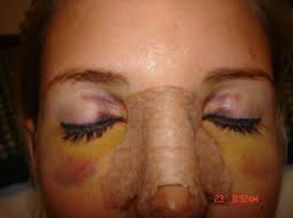
Bruising after surgery is very common and only temporary. Most patients who have a rhinoplasty often have severe bruising around the eyes.


Outcomes/Results
One fifth of people who have a procedure done are not satisfied with the results (Paxman). They may have expected something different or maybe the surgeon made a mistake. Either way, the body will never go back to the way it originally was to begin with.
Of the ones who are happy with the results, many come back for another surgery (Paxman). This shows that the initial surgery does not solve all the patient’s problems- many think it will!
**What it comes down to is that people are always going to be unhappy with themselves- some just have a harder time accepting and realizing this concept. Surgery does not make anyone perfect. You cannot measure beauty and you cannot measure perfection. No amount of surgery will ever change what was on the inside. You might have a more attractive face, but your personality will remain the same regarless of what measures you take.**
“A pretty face does not make up for an ugly personality”- Unknown.
Young boys and plastic Surgery
Problems with body image is usually associated with typically females. It turns out that boys have the same issues with self-esteem as females (AAFPRS). The number of procedures on males continues to grow. Mostly boys would change the size of their breasts because they were born with larger than normal breasts (Plastic). Sometimes boys have their ears pinned back because they sick out on the sides. These are all common procedures. Maybe one day it will be common for young boys to have these done without scrutiny.
Conclusion-
What is the outlook on cosmetic surgery and adolescents?
According to the statistical data (2013 Statistics), apparently many think cosmetic surgery is worth it before they have the procedure completed! More and more adolescents are having procedures done every year (Teens). This number is rapidly growing and shows no signs of stopping anytime soon.
If we pay close attention to the media, such as news reports and videos, we can look at the comments and reactions to this recent phenomena. After being briefly informed, most people respond with shock- they have never heard anything like it before. Majority of spectators think it is outrageous.
But this is changing.
This is truly the generation of cosmetic plastic surgery. The truth is that it is becoming more and more common and popular. With this sudden gain in popularity, it is becoming more acceptable for teenagers to have work done, regardless of how critics today think about it. As time goes on, I believe that procedures on younger people will become more socially acceptable on teenage males and females alike.
Also, I believe that people will never truly be happy with themselves.
I believe in order to be happy with yourself, you have to accept why you are and what you look like.
I think that if you cannot accept yourself for who you are without surgery- you never will.
Don't get me worng- there's nothing wrong with surgery. But I think that people should not rely on it for happiness.
Adolescents will continue to want cosmetic changes with their bodies and society will eventually reflect this. Problems will not be solved through a change in the appearence. If all adolescents learned that beauty is more than what's on the outside- today's society would be in a completely different place- it would be more accepting and not as quick to make superficial judgments. ALL would feel included and accepted.
Isn't this what we all really want?
WORKS CITED
"Rhinoplasty." Wikipedia. Wikimedia Foundation, 21 Apr. 2014. Web. 21 Apr. 2014. <http://en.wikipedia.org/wiki/Rhinoplasty>
“AAFRPS – Otoplasty, Cosmetic Ear Surgery.” Aafrps. N.p., n.d. Web. 21 Apr. 2014. <http://www.aafrps.org/patient/procedure>
"Breast Augmentation." Breast Augmentation. N.p., n.d. Web. 21 Apr. 2014. <http://www.lawrencevilleplasticsurgery.com
"2013 Plastic Surgery Statistics."American Society of Plastic Surgeons (ASPS). N.p., n.d. Web. 21 Apr. 2014. <http://www.plasticsurgery.org/news/plastic-surgery-statistics/2013.html>.
"Teens getting more nose jobs, breast implants." WFTS. N.p., n.d. Web. 21 Apr. 2014. <http://www.abcactionnews.com/news/health/teens-getting-more-nose-jobs-breast-implants>.
Stanger, Melissa. "Attractive People Are Simply More Successful." Business Insider. Business Insider, Inc, 9 Oct. 2012. Web. 21 Apr. 2014. <http://www.businessinsider.com/attractive-people-are-more-successful-2012-9>.
"cosmetic surgery." Dictionary.com. Dictionary.com, n.d. Web. 21 Apr. 2014. <http://dictionary.reference.com/browse/cosmetic+surgery>
"Plastic Surgery For Teenagers Briefing Paper." Plastic Surgery & Teenagers. N.p., n.d. Web. 20 Apr. 2014. <http://www.plasticsurgery.org/news/briefing-papers/plastic-surgery-for-teenagers.html>.
Diller, Ph.D.. "A Solution to Bullying: Where Do We Draw the Line?." The Huffington Post. TheHuffingtonPost.com, 31 July 2012. Web. 21 Apr. 2014. <http://www.huffingtonpost.com/vivian-diller-phd/bullying-plastic-surgery_b_1718398.html>.
"Can plastic surgery be good for teens?."TODAY.com. N.p., n.d. Web. 21 Apr. 2014. <http://www.today.com/id/36101073/ns/today-parenting_and_family/t/can-plastic-surgery-be-good-teens/#.Uysn7_ldX50>.
"A New Edition for a New Era - Our Bodies Ourselves." A New Edition for a New Era - Our Bodies Ourselves. N.p., n.d. Web. 21 Apr. 2014. <http://www.ourbodiesourselves.org/book/companion.asp?id=1&compID=102>.
"Statistics Plastic Surgery." Statistics. N.p., n.d. Web. 21 Apr. 2014. <http://www.plasticsurgery.org/Documents/news-resources/statistics/2012-Plastic-Surgery-Statistics/average-surgeon-fees.pdf>.
Paxman, Lauren. "Costly mistake: One in five who have plastic surgery are unhappy with the results." Mail Online. Associated Newspapers, n.d. Web. 21 Apr. 2014. <http://www.dailymail.co.uk/femail/article-2050938/Costly-mistake-One-plastic-surgery-unhappy-results.html>.
Peer reviewed
Cosmetic and Reconstructive Breast Surgery in Adolescents: Psychological, Ethical, and Legal Considerations - UNCC Library https://www.thieme-connect.de/ejournals/html/10.1055/s-0033-1343999#N66889
Peer reviewed
"Cosmetic Surgery and the Cultural Construction of Beauty" Author(s): Lorrie Blair and Maya Shalmon,
Peer Reviewed article
Wegenstein, Bernadette. The cosmetic gaze body modification and the construction of beauty. Cambridge, Mass.: MIT Press, 2012. Print.
Bridges, Alex. 2014 April. Personal Interview.
Turner, Kelsey. 2014 April. Personal Interview.